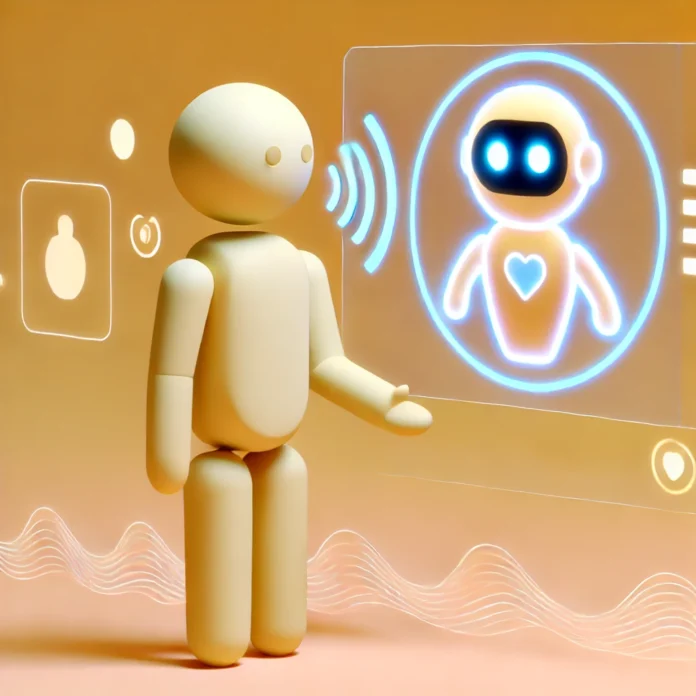In the recent past, the AI-powered chatbots and virtual assistants have reshaped how we interact with the machines. These systems are intelligent and they are designed to assist us by responding to our queries and performing tasks on our behalf. We can see chatbots have exploded in popularity, as a study shows over 88% of customers have used an AI chatbot in 2022. Some key reasons are due to their low cost, 24/7 availability, and scalability. No doubt they have made our lives more convenient, however with the advent of generative AI it is important to understand and analyse any ethical concerns about their impact on our social interactions and relationships.
With tools like ChatGPT, Claude 3, Gemini AI, Microsoft Copilot, it can generate human-like responses to various prompts, including writing poetry, offering automated customer service and now even designing apps. While AI has undoubtedly provided many benefits, there is a growing concern that it could disconnect us from one another and undermine our sense of connection. As we embrace these technologies in our daily lives, it is crucial to reflect on the ethical implications and their impact on social interactions.
The Growth of Conversational AI and Its Impact on Social Interactions
The adoption of AI-based chatbots and virtual assistants is expanding rapidly, in various industries such as finance, healthcare, and e-commerce. They are being used for everything from answering customer queries to booking appointments and making purchases. According to market analysis of Grand View Research, the Conversational AI market is expected to grow at a compound annual rate of 21.6% for the next five years. It can reach up to USD 41.39 billion by 2030. This growth represents a significant shift in the way businesses interact with their customers, as well as the way people interact with technology in their daily lives.
We are now beginning to see how conversational AI impact on our social interactions, as we increase its use. While these AI-powered tools can provide helpful assistance and improve efficiency, they also have the potential to disrupt the way we communicate and interact with one another. As humans, we are wired to communicate with each other in a certain way, and the introduction of machines in this equation can disrupt the natural flow of conversation.
In a study done by Stanford University, titled The Internet’s Paradoxical Effect On Social Lives, it was found that individuals who spend more time interacting with machines than humans are at risk of feeling disconnected and isolated. It also raises concerns that continued reliance on chatbots for communication could lead to a reduction in empathy and understanding, potentially hindering our ability to interact socially with others.
Balancing Ethics and Technology: A Yama-Niyama Analysis
As the world rapidly advances towards greater technological integration, we need to think about the ethical consequences of our daily lives. We must ensure that its use benefits humanity as a whole.
Yama and Niyama lay out the foundation of ethical principles in the yogic philosophy of Bharat. The principles are based on ethical values and practices that promote harmony, balance, and ethical conduct. It can provide a relevant lens through which we can analyze the use of chatbots and virtual assistants in our society. The principles need some analysis on quantitative side, but as of now they can definitely help to build a qualitative framework especially to ensure the foundational side is in balance.
Yama Principles:
The principle of Yama consists of Ahimsa, which means non-violence. When it comes to chatbots and virtual assistants, this principle can be applied to ensure that these technologies do not harm the user in any way, be it physically or emotionally. For example, chatbots and virtual assistants need to be programmed to avoid any offensive or discriminatory language. The principle of Satya, or truthfulness, can also be applied to ensure that these technologies provide accurate and truthful information to users. It emphasises the importance of transparency relevant to data privacy and security. It also pertains to the bias that comes with the output of the prompts that are fed to the bots.
Brahmacharya, an important principle of Yama, can relate to moderation. While we have discussed the effects of modern tech interventions on our social well-being, overuse can lead to the loss of human interaction and even addiction. It is important to moderate the use of conversational bots and virtual assistants to prioritise human connection and reduce attachment by not being too reliant on them.
Niyama Principles:
Shaucha, or cleanliness, can be interpreted as ensuring the purity of the data used by AI systems, avoiding biases, and promoting transparency in decision-making processes. One of the great applications of the principles of Niyama in any AI is the concept of Svadhyaya (self-study), which is about continuous learning that helps in generating better decisions and results. However, the improvement in the development and use of AI systems needs to align with the values and needs of society and not create outcomes that are harmful in any way to the society.
Viveka for Better Understanding of Decision Making
Going beyond Yama-Niyama principles, in the context of AI, the concept of Viveka also plays an important role. It would mean having the ability to make ethical decisions about the development and use of AI technology. For example, a company developing a chatbot for customer service would need to exercise Viveka by considering the impact of their technology on their customers, employees, and society as a whole. They would need to assess whether the chatbot is truly beneficial, or whether it might create more harm than good, and make a decision based on ethical considerations rather than solely on the potential profits or efficiencies it may bring.
Prioritising Principles of Socio-Centric Approaches & Ethical Questions
From the potential impact on social interactions to concerns around data privacy and ownership, there are many ethical questions that arise when it comes to the use of this technology.
Some questions that need to be answered include:
– How can chatbots evolve to incorporate reasoning and emotions for a more human-centric approach to their development, considering that human beings make rational decisions driven by their reasoning, emotions, and world-views?
– Do chatbots abide by moral codes that emphasise the rights of individuals and the collective dharma of society?
– What are the grounding values and ideological principles that determine the ethos, result, and direction of the outcomes obtained from conversational AI?
However, by approaching these questions and analyzing Conversational AI through the lens of Yama-Niyama, we need to ensure that the use of chatbots and virtual assistants is guided by a set of principles that prioritise the well-being of individuals and society as a whole.
It is the collective responsibility of all stakeholders involved in the development and use of these technologies to balance the advancements with the ethical considerations that arise from their use. Also, it aligns with our shared values and principles, and we continue to progress in a way that benefits humanity in the long run.


